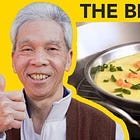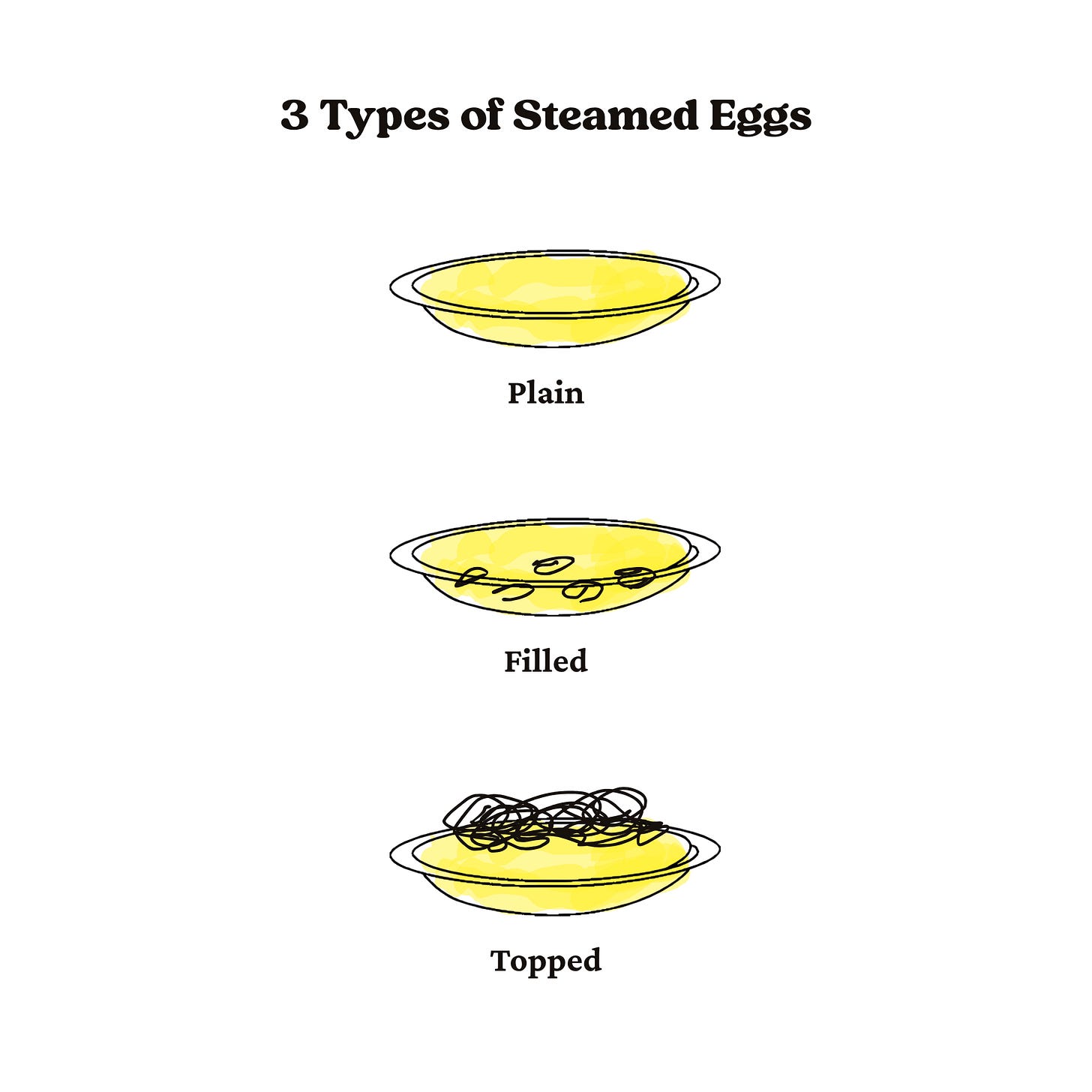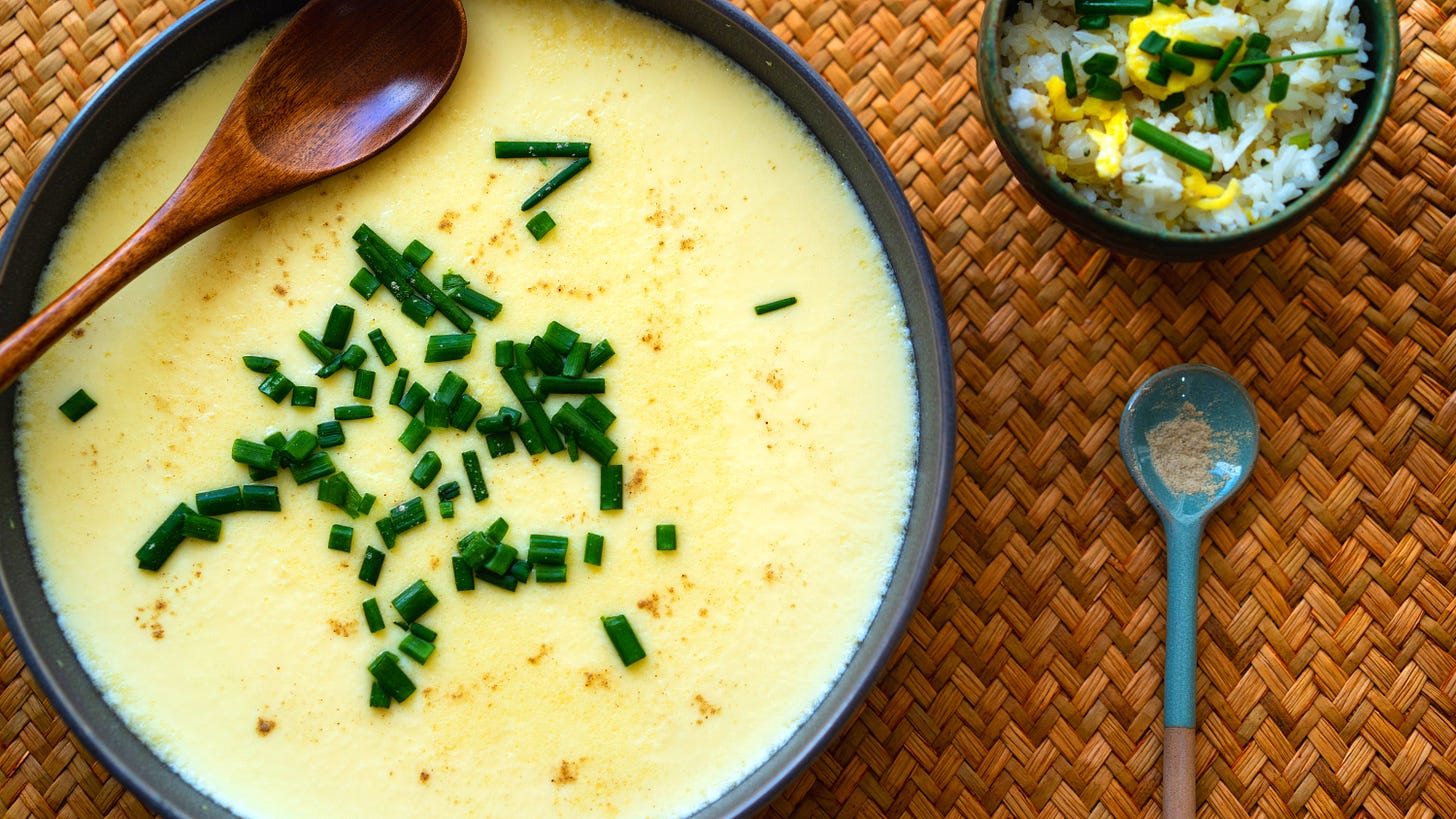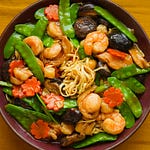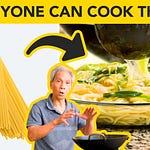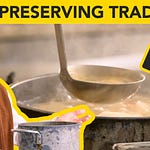Welcome to issue #001 of the 🔒 Cookbook Confidential 🔒!
Each week, I send 1 private newsletter with private recipes, guides, and drafts we're developing for the book.
If you want to help shape our efforts in making a timeless Cantonese cookbook, join our community of 400+ members. You’ll get a digital copy once it’s ready, as well as full access to our weekly Cookbook Confidential and our private group chat. Founding Members will also have their name in our cookbook acknowledgements, and a signed physical copy.
Today, we’ll be sharing SIX different Steamed Egg recipes that we’re considering including in our upcoming cookbook.
Plain Steamed Eggs
Steamed Eggs with Preserved Daikon - our featured video
Steamed Eggs with Dried Shrimp
Steamed Eggs with Tofu & Shrimp
Steamed Eggs with Minced Pork
Combination Steamed Eggs (Chicken & Shrimp Gravy)
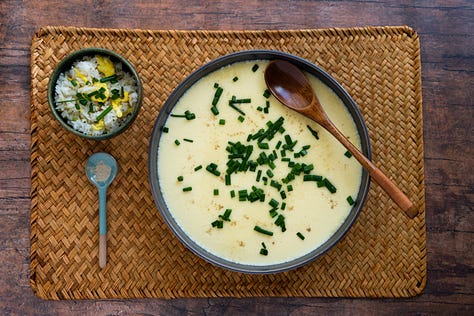
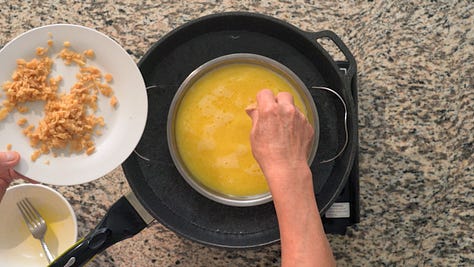
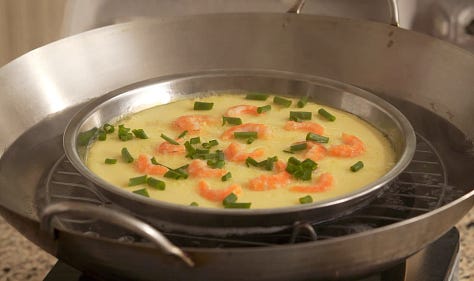
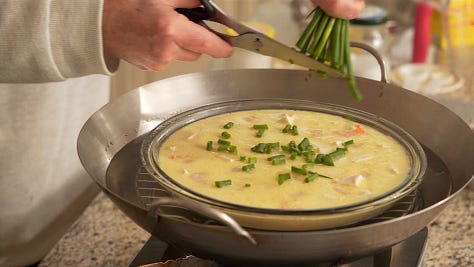
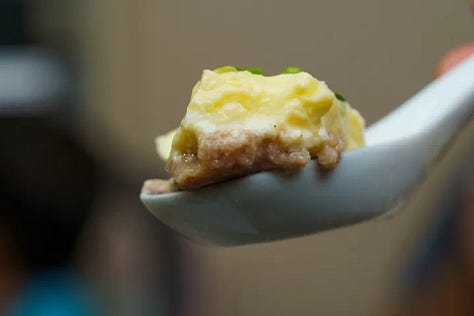
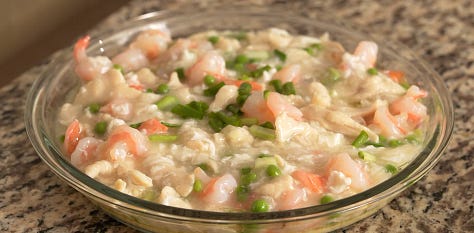
Before I started truly paying attention to my dad’s cooking, I only ever thought of Steamed Eggs as a basic mixture of eggs and water.
Once I started piecing together the Mother Recipe for Steamed Eggs (which dives into the fundamentals), I remembered a bunch of dishes my dad used to make for us and discovered all of these new variations I’d never tried before.
I boiled it down to 3 main categories of Steamed Eggs, and in this newsletter, you’ll get to learn a sampler of all 3 categories.
Before diving into the recipes, read through the full Mother Recipe post for a refresher on the basics.
1) Plain Steamed Eggs (the classic!)
Type: Plain
Randy - The classic dish that most Cantonese kids know and love. My parents used to make steamed eggs for my sister and I all the time as kids. Even now, there's always a 50/50 chance that it'll be a part of the gourmet 10-course holiday spreads that my dad conjures up.
Ingredients
3 eggs (about 150 milliliters)
1:1 ratio of warm water to egg (about 150 milliliters)
½ teaspoon salt
½ teaspoon sugar
1 teaspoon oil
1 dash of white pepper (to taste)
Instructions
Prepare eggs
Crack eggs into a large measuring cup and note what amount you have.
Mix eggs, salt, sugar, and oil in a bowl.
Measure out an equivalent amount of warm water.
Pour a quarter of the warm water into the bowl and beat until bubbles form. Pour the remaining warm water, and continue mixing until you see bubbles again.
Steam
Place steamer rack in the wok, and place a dish on top. Pour water until the bowl is about half submerged in the wok. (Helps with more effective heat transfer.) Cover the wok, and bring water to a boil on high heat.
Once the water is rapidly boiling, turn the heat down until the water is calmly simmering. Beat the eggs again, and pour the egg mixture into the bowl, and cover the wok.
Cook for about 8-10 minutes on low heat, depending on your dish shape and material.
Dad’s Tip: As the dish nears completion, we can test its doneness by gently shaking the wok to find a gelatin-like consistency.
Finish
Remove the lid. Add scallion and white pepper to taste.
(Some people prefer to mix the white pepper into the egg batter. My dad prefers adding at the end. Feel free to get creative here with soy sauce, oyster sauce, other garnishes, etc.)
Remove the steamed eggs from the wok.
2) Steamed Eggs with Preserved Daikon
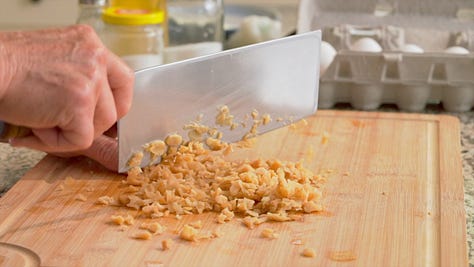
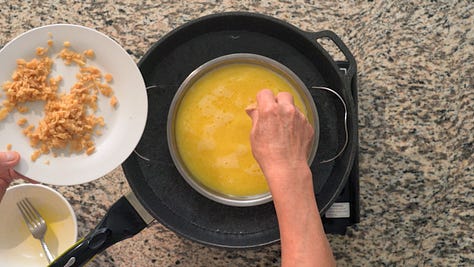
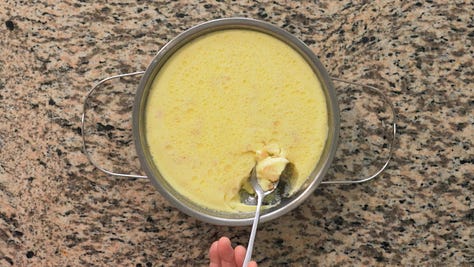
Type: Filled
Dad: This is similar to the version my mom used to make for me as a kid, except hers was much less silky.
Growing up in our village in Toisan, I used to be my mother’s little helper whenever she’d cook for us. I would help her start the stove with by heating coal and burning wood. We were quite limited in resources, and my mother was always very economical about how we spent them.
When my mother would make rice for us in a huge pot, she’d also rest a bowl of steamed eggs and dried turnip, or some other preserved ingredients on top of the rice grains. Because we had to ration our coal, we didn’t always have the luxury of cooking this separately.
What is preserved daikon?
AKA coi pou, dried radish, or preserved daikon, these are slices of radish/daikon that have been preserved with salt. They’re very crunchy and come in either sweet or salty varieties.
Recipe Video
This recipe is from our Mini Masterclasses (21 courses on the fundamentals of Cantonese cooking.)
My dad chose Steamed Eggs with Preserved Daikon to feature as the recipe in our “Elements of Flavor: Funk” course on fermented ingredients and flavors.
Check out the featured recipe video in this newsletter if you want to follow along!


